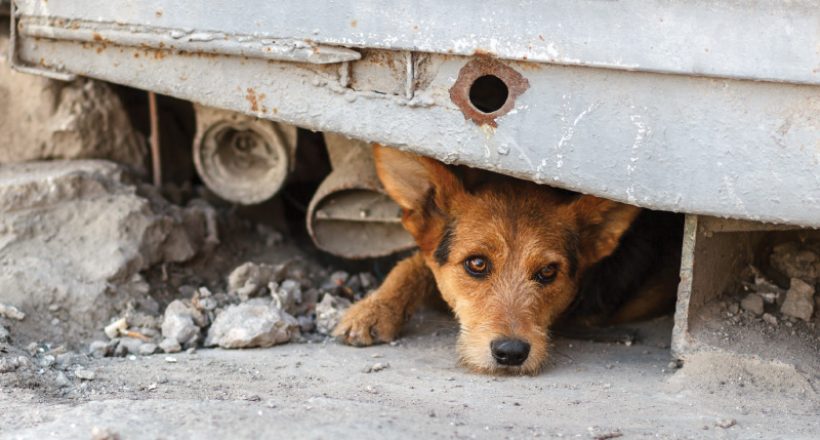
Animals Alone and in Trouble: Can You Help … Should You Even Try? Part 1
- APR 01, 2019Warning: count(): Parameter must be an array or an object that implements Countable in /home/howlermag/public_html/old/wp-content/themes/new-paper/includes/general.php on line 193

Your Lead Paragrpah goes here
Most people familiar with Costa Rica realize how common it is to encounter animals almost anywhere. Sometimes these animals are injured or otherwise in distress but sometimes they look out of place or in a high traffic area. Typically, it’s a stray dog or cat, although wildlife or even horses or cattle in public areas, are nothing out of the ordinary. Yet, that does not mean we automatically know what to do in such situations.
Whenever we see an animal we should assess if it is away from home or in poor condition. If this is the case, and you have time to help it, you are doing a great service to this animal. Under Costa Rican laws all domestic animals — pets and those involved with agricultural production — must be properly identified. Owners are responsible for any harm to humans or animals, as well as property damage, resulting from negligence or non-compliance.
Any movement can cause
severe pain and the natural reaction to bite.
Some guidelines may be helpful for safely lending a hand to animals in need. We’ll start in this article with the most common instance of dogs and cats. Information about horses, monkeys and other kinds of wildlife will appear in the next Howler issue.
When assessing if an animal is, in fact, stray or without a designated home, first identify if the animal is friendly or not by trying to call it towards you. Be cautious, and able to protect yourself. Signs of aggression in cats are flattened ears and hissing, and in dogs their tail is low and not wagging and they might growl. At this point, leave the animal alone.
If the animal is friendly and comes towards you, check to see if it has any type of collar or is running towards a particular home or building. Ask the people around you if they know who owns the cat or dog. If you think that the animal is for sure a stray, always check whether it is male or female before removing it from the scene. Even a badly injured nursing mom will resist leaving her babies behind and attempt to return to the litter. An incomplete rescue, however unintended, would expose the little ones to die from starvation or the mother escaping and risking her life to reunite with her babies.
For cats or dogs that are stray but seem sociable enough, a box may be adequate for transporting them, or at the very least a pillowcase. Bring the animal to our offices , or any supportive veterinarian or rescue agency, and we will work on finding its owner or rehoming it. We always welcome someone to foster an animal while we look for their owners.
Traffic accidents are a common reason for finding injured dogs on the road, with a high probability of fracture trauma. Any movement can cause severe pain and the natural reaction to bite. Try to immobilize the dog above the neck before lifting it by wrapping something around its head. Look for signs of internal hemorrhage too, by carefully checking the dog’s gum color. Totally white gums means there is little chance of survival, and death will occur within minutes. Just stay with the dog in the meantime, offering a calming presence through petting.
The same advice generally applies to injured cats. In addition, there are instances when a stray cat appears to need help, even when injury or illness is not apparent. It’s best to be prepared if possible before attempting to rescue a feral cat — that is, seemingly healthy but homeless. Using a protective trap or cage is preferable to best ensure the rescue mission and transportation will be safe for both you and the animal. These are available at our clinic to borrow with a deposit.

More great HOWLER Pet Care Articles
Pet Cancer and Chemotherapy
Wildlife: An Extraordinary Case of Caring
Blood Transfusions for cats and dogs
Pets get STD’s too
What to Expect from a Costa Rica Vet Visit
Pet Traveling: Happy Landings for your Pet
What to Expect when you pet is expecting
Preparing your pets for raining season
Pet Care: Water Health and Safety
Tick Fever or Ehrlichiosis
Spay or Neuter Pets
Snake Bites: A common pet emergency in Costa Rica









